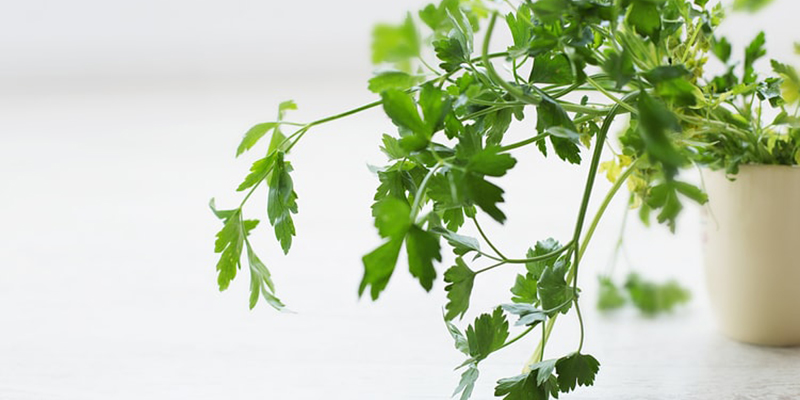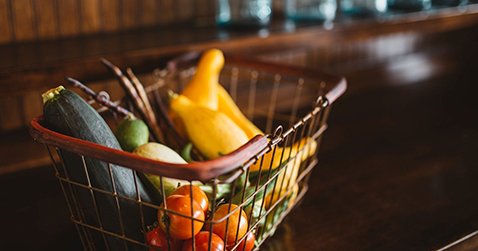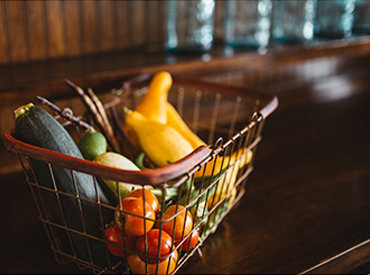2020 Mar 30
While there is no reason to panic over the availability, access to and utilization of food in Sri Lanka at the moment, the stability of food security in Sri Lanka has been a cause for concern due to the Covid-19 outbreak. That said, over-stuffing fridges and purchasing stockpiles of perishable goods may not be the most cost-effective or rational move during the outbreak of a pandemic. Here is a brief guide on preserving food and making your rations last longer during these trying times.
STORING FRUITS AND VEGETABLES

The gases present in fruits and vegetables can vary. Food specialists suggest storing highly gaseous produce separately from less gaseous ones, to make them last longer.
Extra tip: Apples contain ethylene gas, a substance that fastens ripening of nearby produce. Keep apples away from other fruits that over-ripen easily to help them last longer.
HIGHLY GASEOUS PRODUCE
- Beans and lentils
- Cruciferous vegetables (Those belonging to the cabbage family)
- Apples
- Bananas
- Brussel Sprouts
- Dairy Products containing lactose
LESS GASEOUS PRODUCE
- Tomatoes
- Carrots
- Grapes
- Avocadoes
- Poultry
- Potatoes
DO NOT REFRIGERATE TOMATOES

Standard food preservation rules dictate that the cold reduces flavour-producing enzymes and destroys the texture of tomatoes. Store tomatoes out of the fridge to prevent them from becoming tasteless.
Extra tip: The same rule applies for other vegetables like potatoes and onions (separately) which should be stored in a cool, dark place such as a pantry or cupboard.
MAKE FRESH HERBS LAST LONGER

Refrain from storing herbs by immersing them in water. Instead, wrap the stems in a damp cloth and store them in the fridge after placing them in a plastic container or wrap. Wrapping herbs in a damp towel will prevent them from drying out and helps you keep them for two weeks longer. Or dry the herbs on a baking pan and place them in a freezer overnight. Once frozen, place them in a zip lock bag and use it within a month. Basil, dill, cilantro and oregano are the best herbs to use for this method.
AVOID SOGGINESS FOR FRESHER SALAD GREENS

Avoid wilted and slimy lettuce and salad leaves with these steps:
– Remove any damaged or wilted leaves as soon as you buy the produce. This extends the life of the remaining fresh leaves.
– Do not loosen or separate the leaves of head lettuce. Leave them intact and refrain from chopping or washing them until you are ready to use them.
– Prevent bruising salad greens by placing them in a storage container, away from other produce. The bruises (seen as brown spots) are breeding grounds for bacteria buildup.
– Rehydrate your salad greens by immersing them in a sink full of iced water
KEEP YOUR CHEESE MOULD- FREE

Since cheese paper is hard to find in Sri Lanka, consider some wax or parchment paper to store cheese in. Plastic wraps are discouraged since it masks the flavour of cheese. In the alternative, food specialists also recommend rubbing a light coat of olive, canola or vegetable oil around the cut faces of the cheese and storing it in an air-tight container.
NEVER STORE MILK AND DAIRY ON THE FRIDGE DOOR

The fridge door is subject to the most amount of temperature fluctuations, so leave that space for items that do not have to maintain a consistently cool temperature in order to be preserved. Milk and dairy require steady cold temperatures in order to stay fresh. The best place to store them is in the middle or bottom shelves.
Extra tip: The same rule applies for eggs that should ideally be kept at the back of a shelf with the most consistent temperature.
STORE BREAD IN ROOM TEMPERATURE

Keeping your bread in room temperature instead of refrigerating it is the best way to keep them fresh and lasting longer.
MEAT AND POULTRY BELONG IN THE FREEZER

If you plan on storing meat and poultry for longer than usual, keep them in their original packing and store them in the freezer. If the pack is already opened, cover tightly in a freezer bag and store on a plastic tray in the freezer. Always keep a note of the expiry dates.
Extra tip: add a few herbs, garlic or citrus slices along with the meat when storing it in the freezer.
Other pointers
– When you receive new produce, shift them to the back of the fridge and bring the old items to the front
– Label your leftovers with the amount of days left to consume them before it goes bad
– Invest in a few non-perishable items such as canned foods (i.e. tuna), dried goods (i.e. powdered milk, pancake mix, brownie mix, etc.), granulated sugar, peanut butter, cereal and granola bars and dry pasta.
– Most importantly, do not over buy or panic purchase. Make wise shopping decisions and follow the steps above to make your produce last longer.
Are there any foolproof tips that you use to store your goods for longer? Let us know in the comments below.







